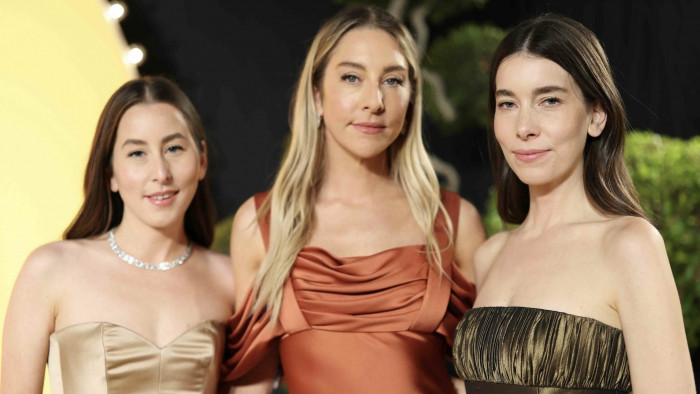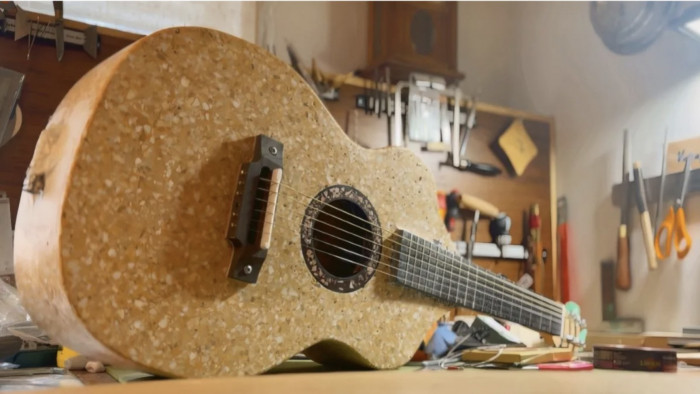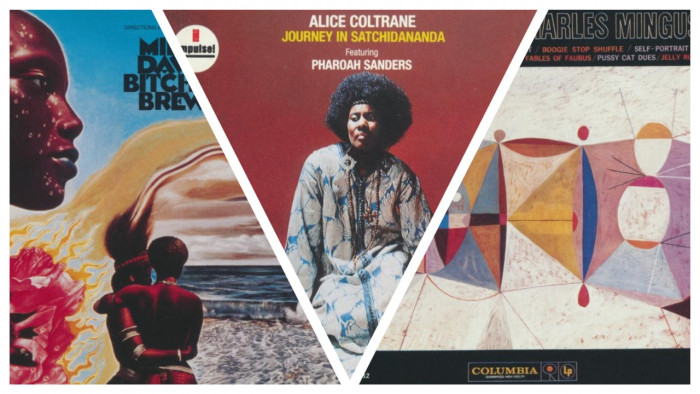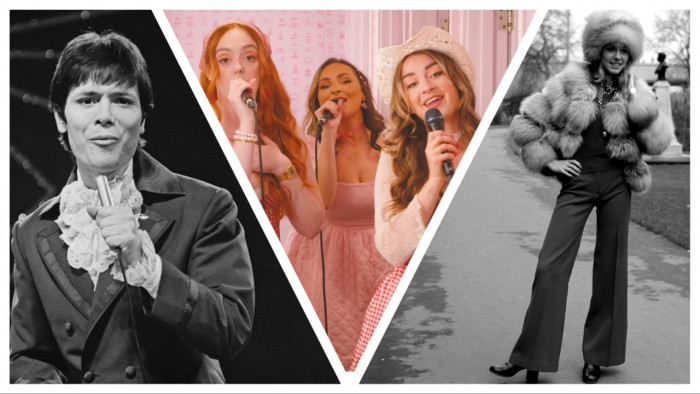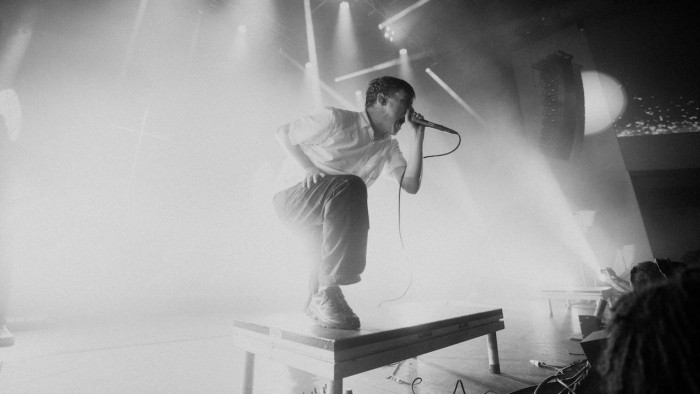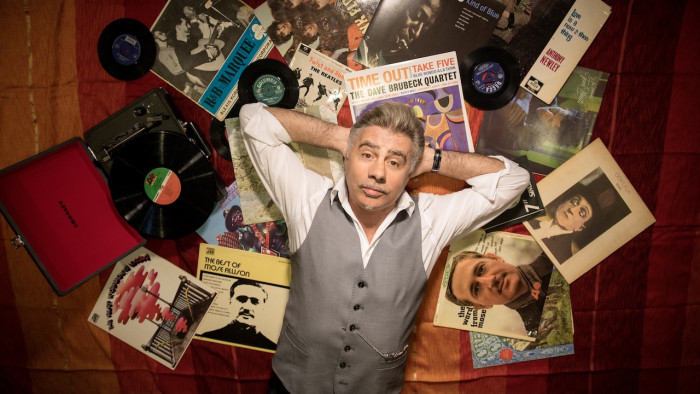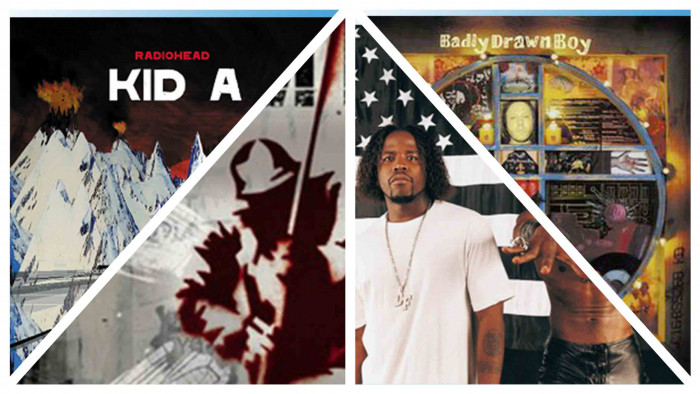Remembering the greatest gig of all time - a gig that's somehow been forgotten
90 minutes of raw, emotional brilliance


“It’s not an accident that the performance probably most well-known in my career was sung to my lover, who was dying” - George Michael
As a music-obsessed nipper, I was a huge fan of the single. Those three minutes of magic that transported me to another, otherworldly place; and my early years were spend jumping from song to song, eager for the next hit regardless of which act was providing it.
But the first band I ever really loved was Queen.
In true Partridge style, my gateway to their phenomenal back catalogue was via the trusty Greatest Hits, which my dad - along with about 20-odd million other people - owned. It was completely mindblowing and, before long, I was obsessively saving my pocket money to be able to buy every one of their many, many albums.
At that age, I neither knew - nor would have cared if I had - that the critics had never really liked them. All I knew was that I was listening to a band that were supremely gifted songwriters (famously, each one of them wrote a number one single, a fact I was well aware of as I scoured the sleeve notes and credits) and musicians (all of them were multi-instrumentalists and all, bar Deacon, brilliant singers). Moreover, they were true artists, exploring a huge range of styles and constantly experimenting in the studio, pushing the envelope of what was achievable with the limited amount of tracks available at the time. They even invented the music video with ‘Bohemian Rhapsody’.
But of course, as much as I loved Brian, Roger and John - in fact, I was inspired to learn bass purely because of my love of Deacon’s underrated and wonderfully inventive playing - there could be no doubt who was the king of Queen: it was Freddie. The greatest frontman of all time; a phenomenal and charismatic talent who could effortlessly go from bombastic (’I Want It All’) to tender and vulnerable (’Love of My Life’).
Which was why it was such a shock to me when he died, in November 1991. Being very young I didn’t really understand why he’d gone, just that I’d lost an idol; I was very upset. That was surely it for the band.
However, following this tragic event, behind the scenes, the remaining members of Queen met with their manager Jim Beach to organise a fitting tribute to their friend. In fact, the night that Freddie died, Brian May said that they all agreed: “Well, we should give him an exit in the true style to which he’s accustomed.”

Fans swarm at the Freddie Mercury tribute concert in 1992
“We should give him an exit in the true style to which he’s accustomed” - Brian May
Plans for a Freddie Mercury Tribute Concert for AIDS Awareness to take place at Wembley Stadium were announced by May and Taylor at the following year’s BRIT Awards. All 72,000 tickets were sold within three hours, despite no guesting artists having been announced, nor any details on what exactly the show would consist of.
The show took place on Easter Monday 1992 and was broadcast live on TV and radio to 76 countries around the world, with an estimated audience one billion people, of which little old me was one. I always remembered it being an emotional night. I remember it being a wonderful celebration of his work and life - and I particularly remember the speech given by Elizabeth Taylor which was utterly unflinching in its directness.
But I had never seen it again, until last weekend, 25 years on. I don’t ever recall it being repeated on TV, and it never became a celebrated and oft-remembered gig in the way that 1985’s Live Aid - an event which, of course, helped catapult Queen to global fame seven years before - did. Strangely, for a concert to pay tribute to someone as unforgettable as Freddie Mercury, it had been… forgotten.
However, after a friend alerted me to the fact that it had been shown on Sky Arts over Christmas, I looked it up, cued it up via On Demand and sat down to watch it again.
The year may be young, but I’m already ranking that as one of the best decisions I’m going to make in 2018.
It’s hard to think of an hour and a half so jam-packed with absolute, complete legends of the game, playing some of the greatest songs ever written, with such a clear and obvious desire to do justice to them.

The great man himself
With Live Aid, while some acts nailed their slots (Queen and U2 for a start), there was a sense that the overall mission was far more important - and, to be fair, it was. In theory the quality of the music was not actually that important. In addition, with bands coming on and off, there were technical issues and the like.
However, for the main event of the Freddie tribute show (the ‘warm-up’ saw a variety of Queen-influenced bands, including Metallica, Guns ‘n’ Roses and Def Leppard, playing a few of their own songs), which saw the three remaining members of Queen play with a variety of extra guests, there were no such problems. And with the Freddie show, while, clearly, the raising of AIDS Awareness was hugely important, so was getting the music right - this was a night to both help fight the disease which had taken him, and also to honour his musical legacy.
But, it turned out, it wasn’t simply these two notable aims that made the event so emotionally-charged: there were other tragic stories which unexpectedly wove themselves into the fabric of the night, completely unknown to the public at the time.
It’s probably worth listing, at this juncture, the full extent of the talent that graced the stage alongside Brian, Roger and John, just so you can see it laid out in black and white.
David Bowie, Elton John, George Michael, Roger Daltrey, Robert Plant, Annie Lennox, Axl Rose, Slash, James Hetfield, Liza Minelli, Tony Iommi, Joe Elliott, Seal, Paul Young, Lisa Stansfield, Mick Ronson, Phil Collen, Ian Hunter, Gary Cherrone and Zucherro.
I mean, come on. That’s just ridiculous.
The tracklisting is immaculate, opening with just Brian, Roger and John launching into a blistering rendition of ‘Tie Your Mother Down’, before Def Leppard’s Joe Elliott bounds onstage to do the second verse (Brian said: “I want you to do ‘Tie Your Mother Down’, but you’re only on in the second verse because I want it to start off with just the three of us.” Joe said: “Hey, it’s your gig!”) before on comes peak-era Slash looking like the coolest man who’s ever lived to launch into a load of massive solos. You don’t get that at a Sam Smith gig, do you.
Roger Daltrey mic-swings his way through a solid ‘I Want it All’, Zucchero does a great job on the lesser known ‘Las Palabras de Amor’, before the rock is brought once again with the double whammy of ‘Hammer to Fall’ and ‘Stone Cold Crazy’, with guest vocalists Gary Cherone (of Extreme) and James Hetfield (of Metallica) absolutely ripping their way through the performances, with the latter in particular revelling in being freed from the usual constraints of having to play guitar.
Next up is Led Zep legend Robert Plant, who struggles somewhat through ‘Innuendo’ - ironically, a song that Queen wrote in tribute to the Zep - but which is still a thrill to hear live. Remember, the album on which it appeared was recorded shortly before Mercury died, and he never performed any of the tracks live, so this was the first time that May, Deacon and Taylor had ever played it in front of an audience. However, Plant more than makes up for it with a blast through ‘Crazy Little Thing Called Love’.
The first of many poignant moments comes next, though, with Brian taking to the piano to perform the then-unreleased ‘Too Much Love Will Kill You’ alone; you can hear a pin drop throughout.
Then there’s an early-’90s jaunt with a trio of performances from Paul Young, Seal and Lisa Stansfield. Young does a solid job on ‘Radio Ga Ga’, but Seal’s performance of ‘Who Wants to Live Forever is simply breathtaking and, again, absolutely heart-rending, given the lyrics and the circumstances. As if aware of the heaviness of the preceding track, Stansfield’s performance of ‘I Want to Break Free’ is an unexpected joy as she comes out complete with hoover, in tribute to the famous video, and sings with as much levity and happiness as she can summon.
However, the best is truly saved for last.
Annie Lennox and David Bowie’s duet on ‘Under Pressure’ is extraordinarily brilliant. Naturally, Bowie is amazing, but Lennox’s performance is absolutely spellbinding; it’s also worth checking out the rehearsal footage, with George Michael singing along and a little nod from Brian May to Bowie at 2:50 as if to say “yeah, she’s got the gig”.
Bowie then stays onstage to effortlessly rattle off ‘All the Young Dudes’ and ‘Heroes’ alongside Ian Hunter, Joe Elliott, Phil Collen and Mick Ronson, with Bowie whipping out a sax to boot; arguably this is his finest-ever performance of the latter track.
The audience was already witnessing history, since it was the first time that Bowie and his former bandmate Ronson had performed together since 1973, but what they didn’t know was that Ronson was seriously ill with liver cancer: he would die just a year later, and this was to be his final high-profile live performance.
Swept up in the emotion of the whole event, Bowie then offers up an unexpected tribute - the Lord’s Prayer no less - to all those suffering from the effects of AIDS. Getting down on your knees and praying in front of 72,000 at Wembley Stadium? Now that’s rock ’n’ roll.
If Bowie and Ronson’s performance was emotional, however, it was nothing compared to George Michael’s stint on stage.
After warming up with a gentle version of ‘39’, he then teams up with Lisa Stansfield to perform a flawless rendition of ‘These are the Days of Our Lives’ - again, being played live for the first time - before then summoning up every ounce of passion and emotion for his finale, ‘Somebody to Love’.
Again, the audience didn’t know it at the time, but George’s boyfriend Anselmo Feleppa - the love of his life and, in George’s words, “my saviour” - was terminally ill with AIDS and would die the following year. George explained his feelings in the recent, posthumous documentary Freedom:
“I’m very proud of that performance, but Anselmo was in the crowd and I went out there knowing that I had to honour Freddie Mercury, and I had to pray for Anselmo.
“I just wanted to die inside, so it was so much to me, all in that one performance. I was so overwhelmed by the sadness of singing the songs of this man that I absolutely worshipped as a child, who had passed away in the same manner as my first live-in partner was going to experience. It was just overwhelming for me… It’s not an accident that the performance probably most well-known in my career was sung to my lover, who was dying.”
Watching it at the time I remember being blown away by George’s performance - watching it back now, knowing what we know, and with those quotes in mind, it has to rank as one of the bravest and greatest performances of all time. You can literally see him pouring absolutely everything into it. It’s truly humbling to witness.

“I just wanted to die inside, so it was so much to me, all in that one performance” - George Michael
But still, there’s even more: taking on ‘Bohemian Rhapsody’ would seem like an impossible task, but Elton John leads the crowd through the famous opening, before a recording of Freddie is used for the famous opera section. And then, who else would you want to do the ‘rock’ section than a fully leather-skirt and ice hockey shirted-up Axl Rose, whose bloodcurdling screams fit it perfectly. And then, the ‘nothing really matters’ end section is particularly moving, given that there had been criticism of Axl even being there in the first place, due to criticism over his casual use of the word ‘faggot’ in the song ‘One in a Million’. Now he was up there hugging the openly-gay Elton John; Axl performing alongside one of his idols (compare the drum fills on ‘November Rain’ and ‘Don’t Let the Sun Go Down on Me’) while simultaneously paying tribute to another. Queen’s publicist Wendy Laister later revealed that Axl wrote a letter to Brian saying how proud he had been to be part of the show.
Straight into another almost unbearably raw moment: a first-ever performance of ‘The Show Must Go On’, the song which documented Freddie’s physical breakdown from his illness, but also his refusal to give up. Just imagine being Roger, Brian and John and playing that song without him; how they got through it I’ll never know. Elton’s performance - again, liberated from the piano he gives a rare singing-only performance - is magnificent. He doesn’t hit every note, but he sings every single one with absolute passion. Like George he gives it absolutely everything, and it’s a remarkable sight to witness.
The show ends in the only way it could - the double A-side, back-to-back of ‘We Will Rock You’ (Axl Rose screaming his way through the vocals), followed by Liza Minnelli performing ‘We are the Champions’ - and if there was anyone other than Freddie who could perform that second verse (“I’ve taken my bows/And my curtain calls/You brought me fame and fortune, and everything that goes with it/I thank you all”) with knowing aplomb, it was Liza.
Naturally, there’s the all-star send off, before Freddie himself sees us off with a ‘God Save the Queen’ outro. You can see Brian, Roger and John almost dazed by it. Tony Iommi later told Classic Rock: “Immediately after the show was over, in private, it hit Brian very hard. Hit them all. It was so, so sad. John was just in bits. It was a case of: ‘Right, that’s it, over, final’.”
I can’t imagine what that must have felt like; organising the concert had probably been a great way to take their minds off the sadness they were experiencing in losing a dear friend: now there was nothing else to do but face the truth, that they’d never step out on stage with him again.

“Immediately after the show was over, in private, it hit Brian very hard. Hit them all. It was so, so sad” - Tony Iommi
There are a whole host of other incredible live shows that have rightly gone down in history: The Who’s Live At Leeds, the Sex Pistols at Manchester’s Free Trade Hall, Queen’s own 1986 Wembley show, Jimi Hendrix at the Isle of Wight to name but a few - but for sheer talent, amazing songs, and the pure, raw emotion of the event - from a variety of sources - it’s hard to think of one that can top the Freddie Mercury tribute back in 1992. Could it have been better? Of course, but like the Schrödinger’s Cat of gigs, if Freddie himself had been there to top off the cast list, then it would never had happened at all.
Looking back, the event also marked a moment in rock history when everything changed: Daltrey, Bowie, Elton, Plant and Iommi (as well as Mercury) were all born within four years of each other, were all in their forties, and grunge and rap-metal was on the way to wash classic rock into the sidelines. At the same time, even the younger rockers Slash and Axl - then at the peak of their powers in Guns - would split acrimoniously only two years later. George Michael would enjoy an Indian summer in the nineties, but this was his imperial phase. Even the pop acts, Seal and Lisa Stansfield, would never be this big again.
And of course, it was the last we’d see of the original Queen. No more John, no more Freddie.
Joy, sadness, fun and pain. This is what music’s all about isn’t it? And nowhere were those emotions more present than on that stage at Wembley back in 1992.
The Freddie Mercury Tribute Concert is available to watch on Sky Arts on demand
(Images: Rex)
